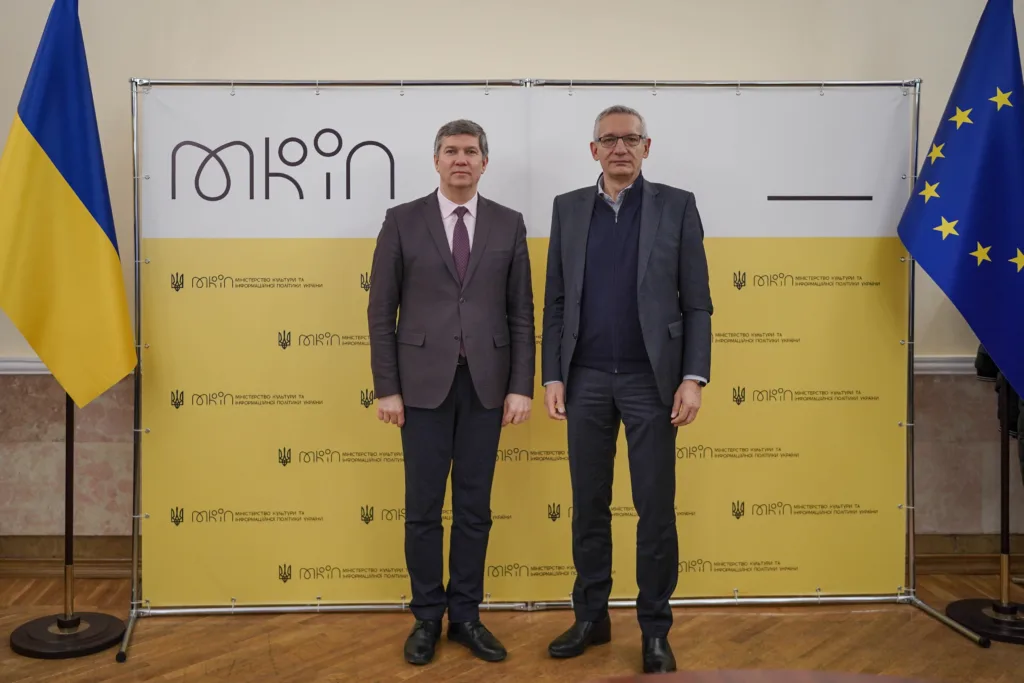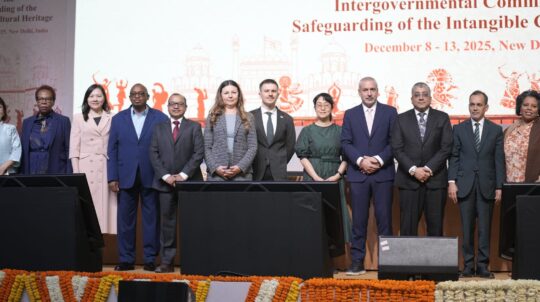Today, on December 22, a meeting took place between the Acting Minister of Culture and Information Policy Rostyslav Karandieiev and the Ambassador Extraordinary and Plenipotentiary of the Federal Republic of Germany to Ukraine Martin Eger.
Rostyslav Karandieiev expressed gratitude to Germany for robust cooperation not only in the military sphere but also in the cultural one. Specifically, since the beginning of the full-scale invasion, Germany has provided over 250,000 tons of humanitarian aid for the needs of Ukrainian museums.
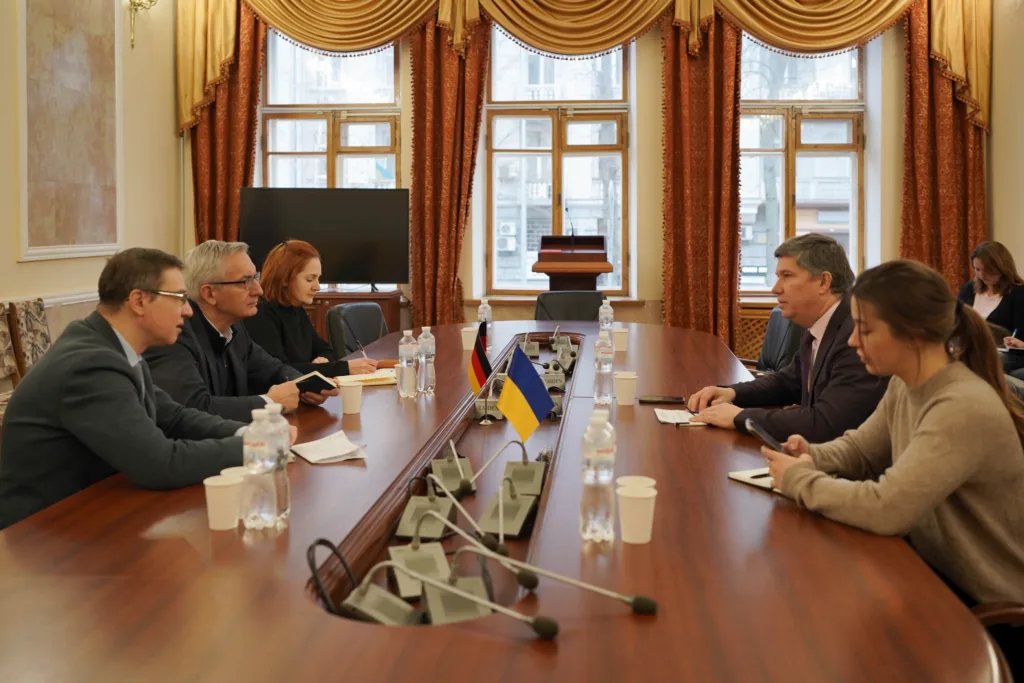
“We are keen on fostering horizontal ties between cultural institutions in Ukraine and Germany, exemplified by entities like the Elbe and Odesa Philharmonics. This collaborative approach enables us to draw on creative and organizational practices. Simultaneously, we envision a future guided by a fresh philosophy for post-war cultural restoration, where these entities serve as integral components of a comprehensive tourist infrastructure. In this context, we are eager to learn from the valuable expertise of German professionals,” he emphasized.
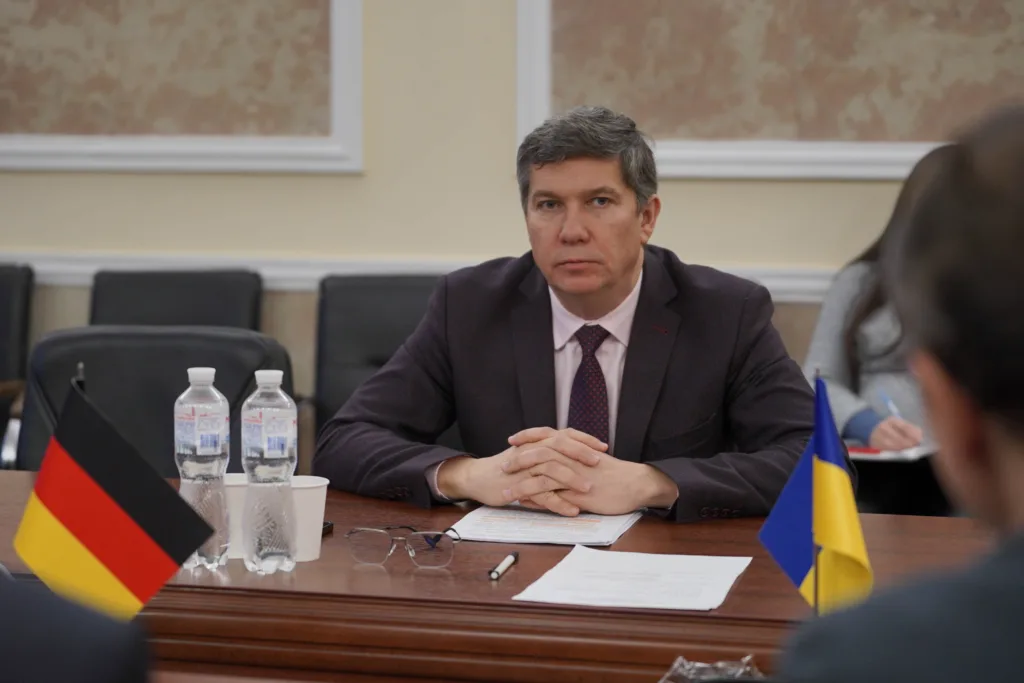
Additionally, Rostyslav Karandieiev requested consideration of grant allocation for the education and training of Ukrainian restorers. He also emphasized the importance of promoting Ukrainian literature in Germany, as well as facilitating translations of German literary works into the Ukrainian language.
“The presence of Ukrainian artists and products in the German cultural space is invaluable. Such projects are already underway. Recently, the Lviv Symphony Orchestra performed a concert at the Berlin Philharmonic. This exchange is beneficial for both cultures, and we encourage further collaboration,” he shared.
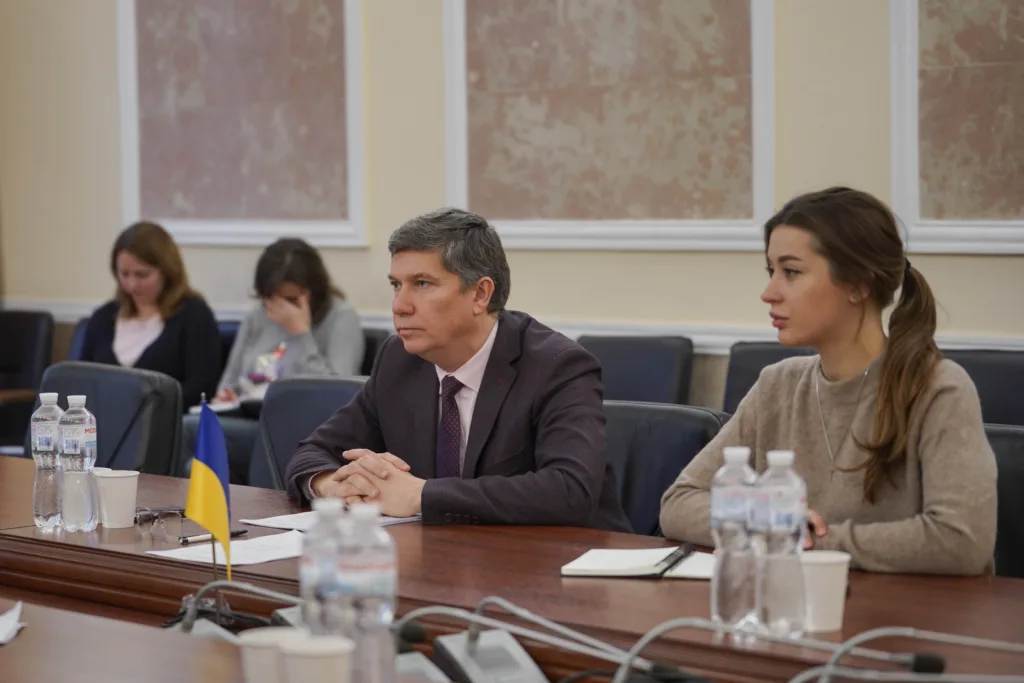
In addition, the Acting Minister emphasized the importance of creating barrier-free access to cultural institutions in Ukraine. This is related to the fact that due to the war, many men, women, and children have acquired disabilities. He sought assistance in designing such facilities and technical support, acknowledging that Germany is a leading country in this direction with significant expertise.
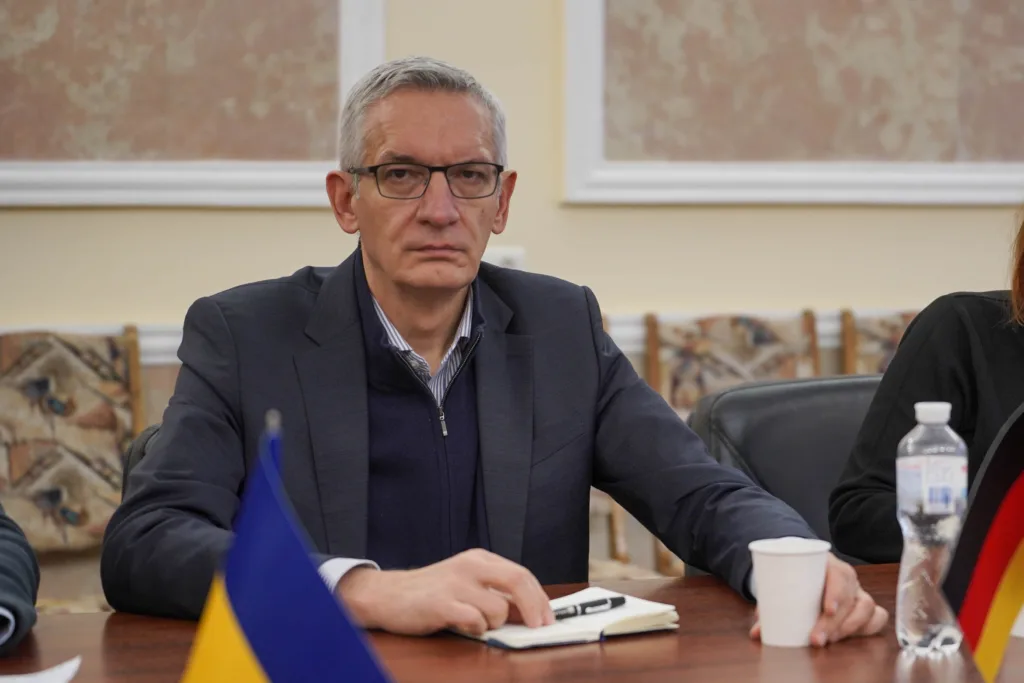
The German side confirmed its intention to continue cooperation on the issues raised during the conversation and expressed readiness to identify contact persons to address them.
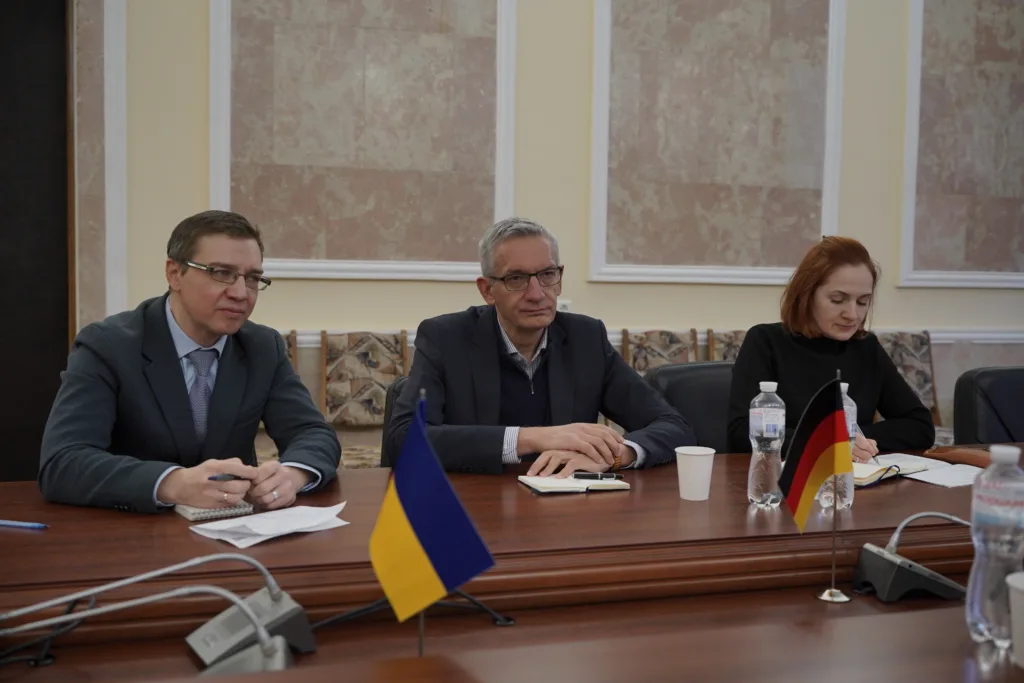
“Germany is highly interested in Ukraine. Literature and translating literary works are topics of great interest. It is crucial for Ukrainian students to have the opportunity to read philosophical works by Kant and Hegel not in russian, but in the Ukrainian language, as it is an essential part of national identity,” noted Martin Eger.
